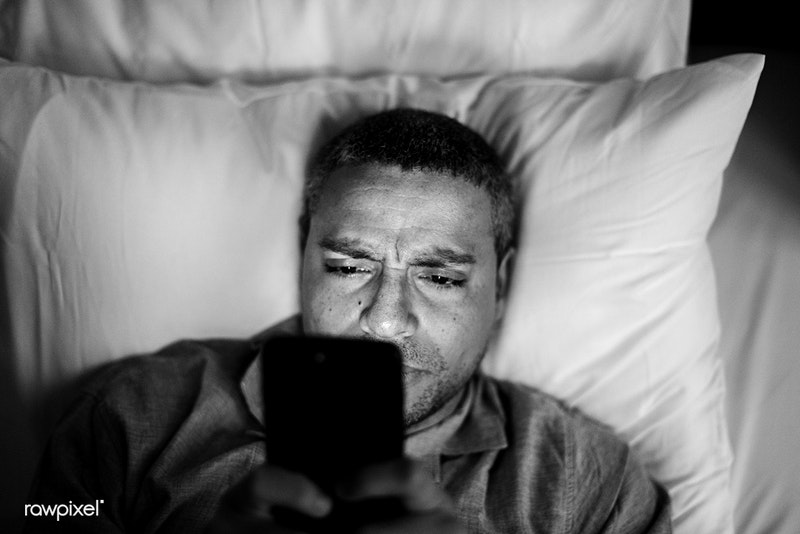Mental Illness Keeping You Up? 4 Tips for Better Sleep | Brad Krause
When you live with mental illness, taking good care of yourself is a top priority. But what if you’ve fixed your diet and exercise habits, developed tools to manage your condition, but still struggle to sleep? Sleep problems are common in people with mental illness, but they’re not insurmountable. These tips will help you solve your sleep problems once and for all.
Sleep and mental health: Why it matters
For people with mental health problems, sleep deprivation makes symptoms more severe and less responsive to treatment. A condition that’s manageable on a good day can become debilitating when insomnia enters the picture. Additionally, persistent lack of sleep can eventually lead to mental health problems.
Sleep loss problems are tied to comorbid conditions like depression. Comorbidities complicate mental health treatment. When anxiety and depression are paired together, for instance, symptoms are often more intense and harder to diagnose.
4 tips for a good night’s sleep
Now that you understand why sleep matters, it’s time to get to work solving your sleep problems. Follow these tips and you’ll have an easier time falling and staying asleep.
Get comfortable
Good sleep starts with a comfortable bedroom. Use window treatments to block outside light, remove or cover light sources like alarm clocks, and block distracting sounds with soundproofing or a white noise machine. If your mattress is showing its age or not suited to your body type, replace it. If you’re not sure what to look for, consider memory foam. Memory foam mattresses suit most sleep styles and body types and come in several firmness levels so you can choose what feels best. They’re also affordable; while there are high-end memory foam mattresses available, many are priced from budget to mid-range.
Keep electronics out of the bedroom
While barely noticeable during the day, the small lights on TVs, computers, and phones are bright enough to interfere with sleep at night. However, that’s not the main reason to keep electronics out of the bedroom. Using electronics close to bedtime also interferes with your body’s biological clock, keeping you alert so it’s harder to fall asleep.
And pets too
Pets are a great source of comfort and companionship, but they don’t belong in bed with you. Pets take up bed space and move during the night, interrupting your sleep in the process. You might feel bad kicking your pup out, but most dogs appreciate having their own bed once they get used to it. If you want to keep your pet in the bedroom with you, use a crate to train your dog to sleep in its own bed. A crate should have enough space for your dog to stand and turn around comfortably, which means if you have a big dog, you need a big dog crate like the budget-friendly BestPet wire crate or decorative Merry Pet 2-in-1 crate. Just be sure to equip the crate with a bed so your dog has a cozy space to sleep in, too!
Clear your mind
For people with mental illness, intrusive thoughts are often the biggest barrier to sleep. If you struggle to quiet your mind at night, focus your thoughts on something soothing instead. Experiment with guided imagery, progressive muscle relaxation, yogic breathing, and other relaxation strategies to find what works for you.
What about medication?
If you’ve talked to your doctor about insomnia, there’s a good chance you were prescribed sleeping medication. 9 million Americans take prescription sleep aids and more take over-the-counter sleeping pills when they need help falling asleep. But while sleeping pills may seem like a miracle cure, these medications come with a lot of risks. Sleep aids have been associated with a range of short- and long-term side effects, including headaches, nausea, hallucinations, and an increased risk of cancer, dementia, and death. While sleep aids are appropriate in some cases, they shouldn’t be the first line of defense against insomnia.
If you’ve taken steps to solve your sleep problems but still struggle to get to sleep, talk to your doctor. In addition to behavior changes, there are mental health therapies that can improve your sleep without relying on sleeping pills. It’s hard work, but when it comes to mental health, solving your sleep problems pays off.
Image via Rawpixel (https://www.rawpixel.com/image/378893/free-photo-image-insomnia-addict-addicted)
References:
*more severe – https://www.psychologytoday.com/us/blog/sleepless-in-*america/201803/insomnia-symptom-or-disorder
l*ead – https://www.talkspace.com/blog/the-surprising-new-connection-between-sleep-and-mental-health/
*depression – https://www.care-clinics.com/the-comorbidity-of-anxiety-and-depression/
*showing its age – https://www.healthline.com/health/when-to-change-mattress
*biological clock – https://www.cnbc.com/2017/11/03/nobel-prize-winner-sleep-research-dont-take-your-phone-to-bed.html
*don’t belong in bed – https://www.vice.com/en_au/article/pak4wy/science-says-you-shouldnt-sleep-next-to-your-dog
*train your dog – https://www.canidae.com/blog/2017/12/how-to-train-your-dog-to-sleep-in-its-own-bed/
*enough space – https://puplifetoday.com/best-large-dog-crates/
*relaxation strategies – https://www.verywellhealth.com/how-to-reduce-racing-thoughts-at-night-3015286
*side effects – https://time.com/5414015/sleeping-pill-health-risks/

